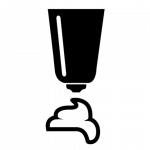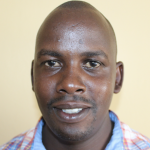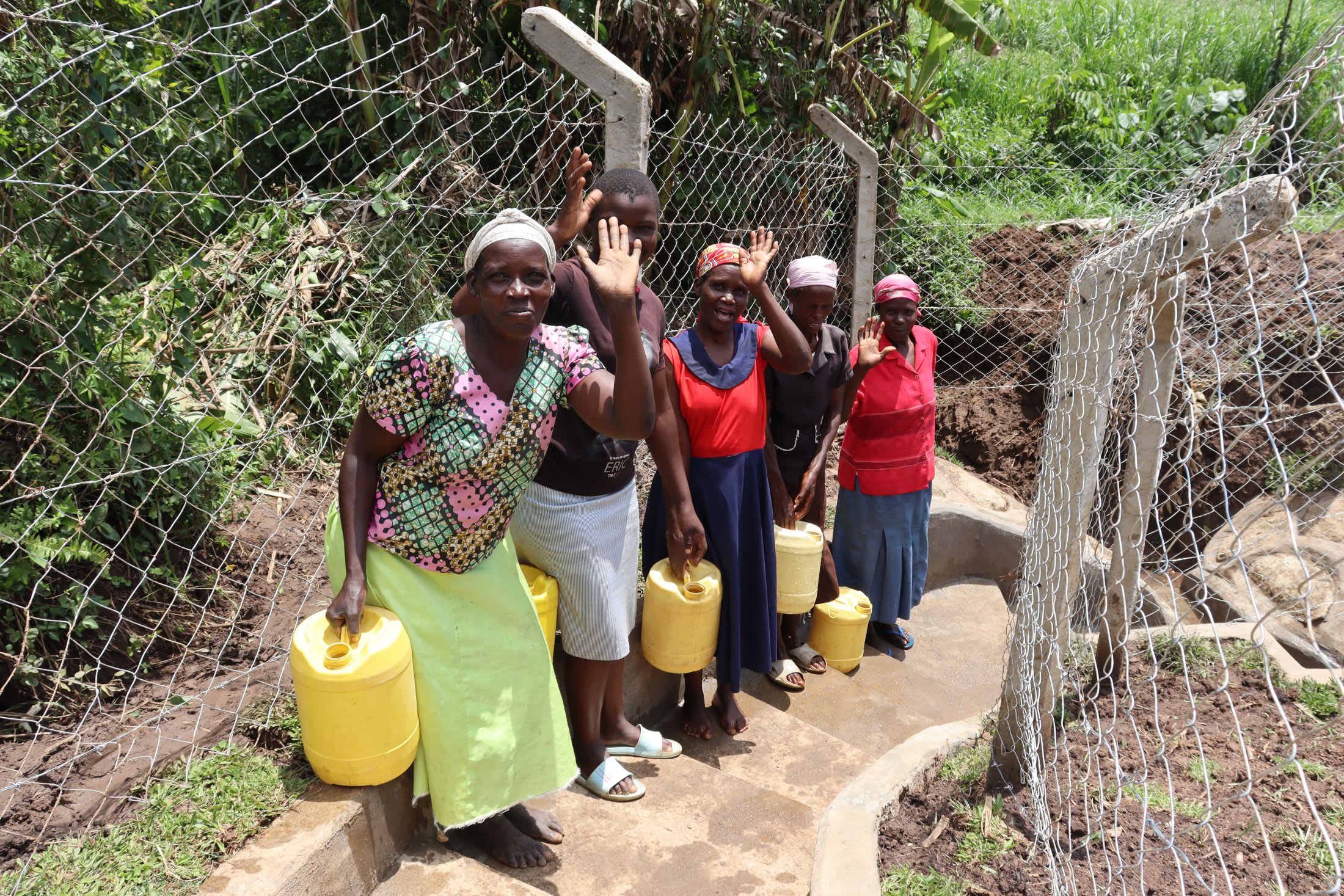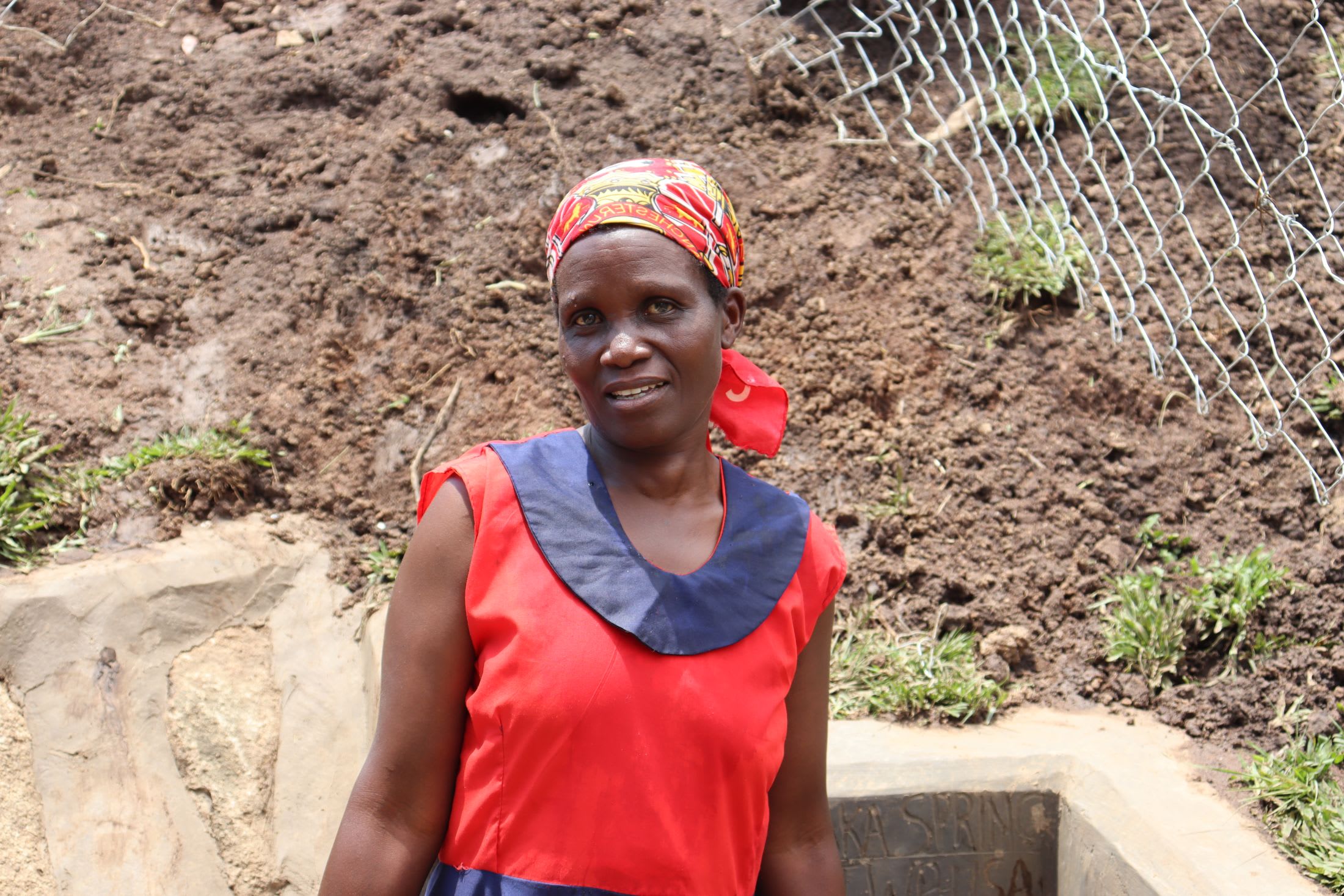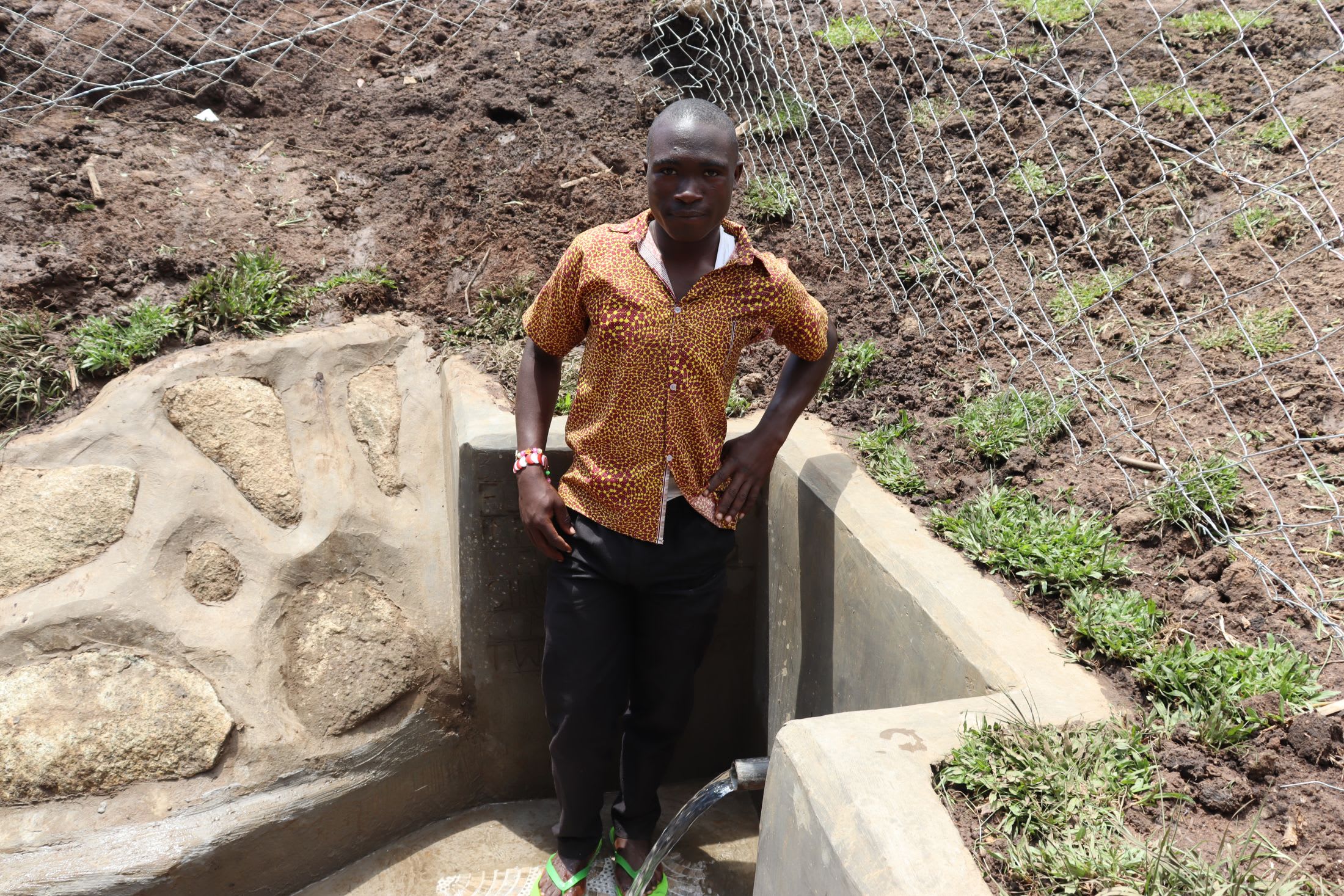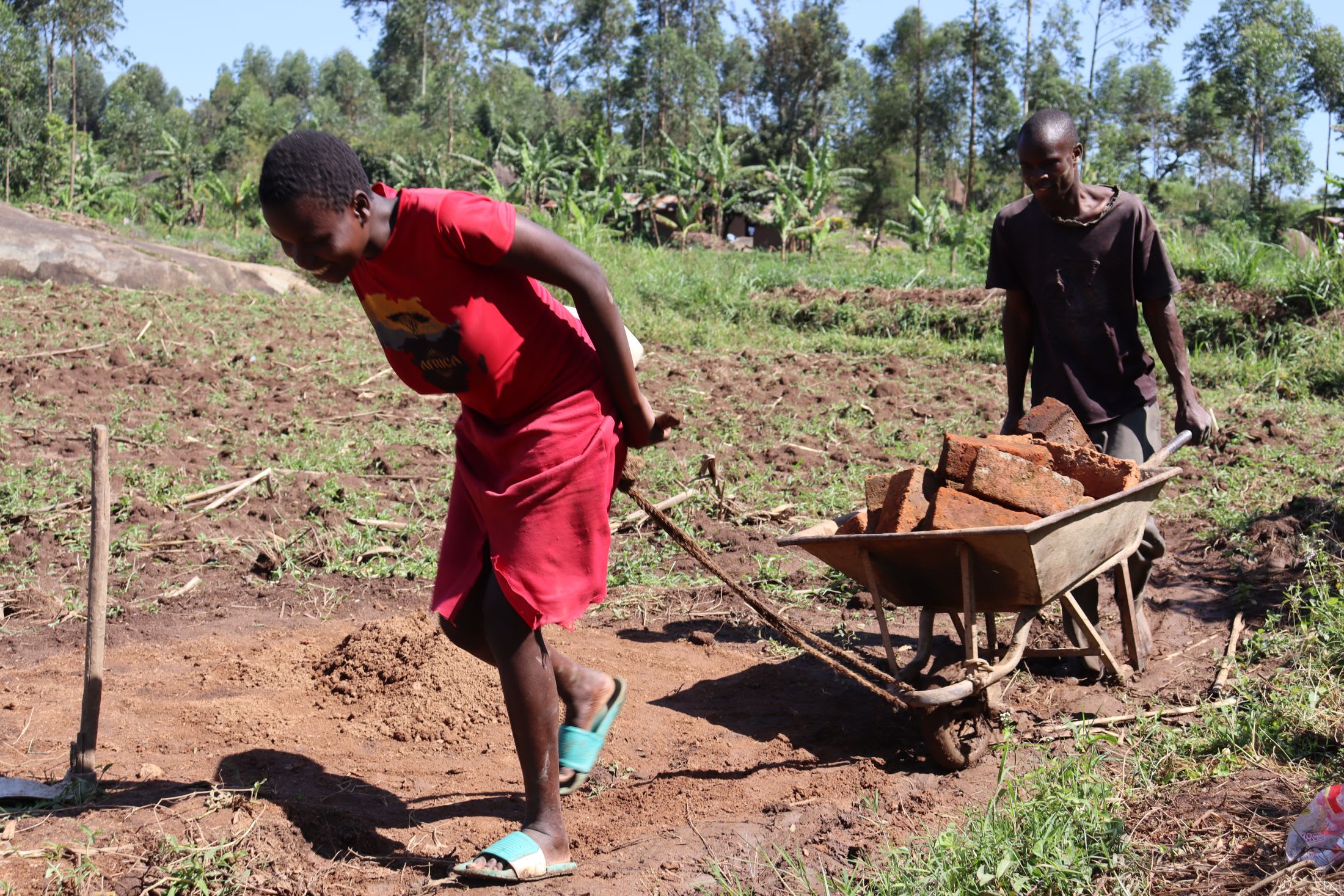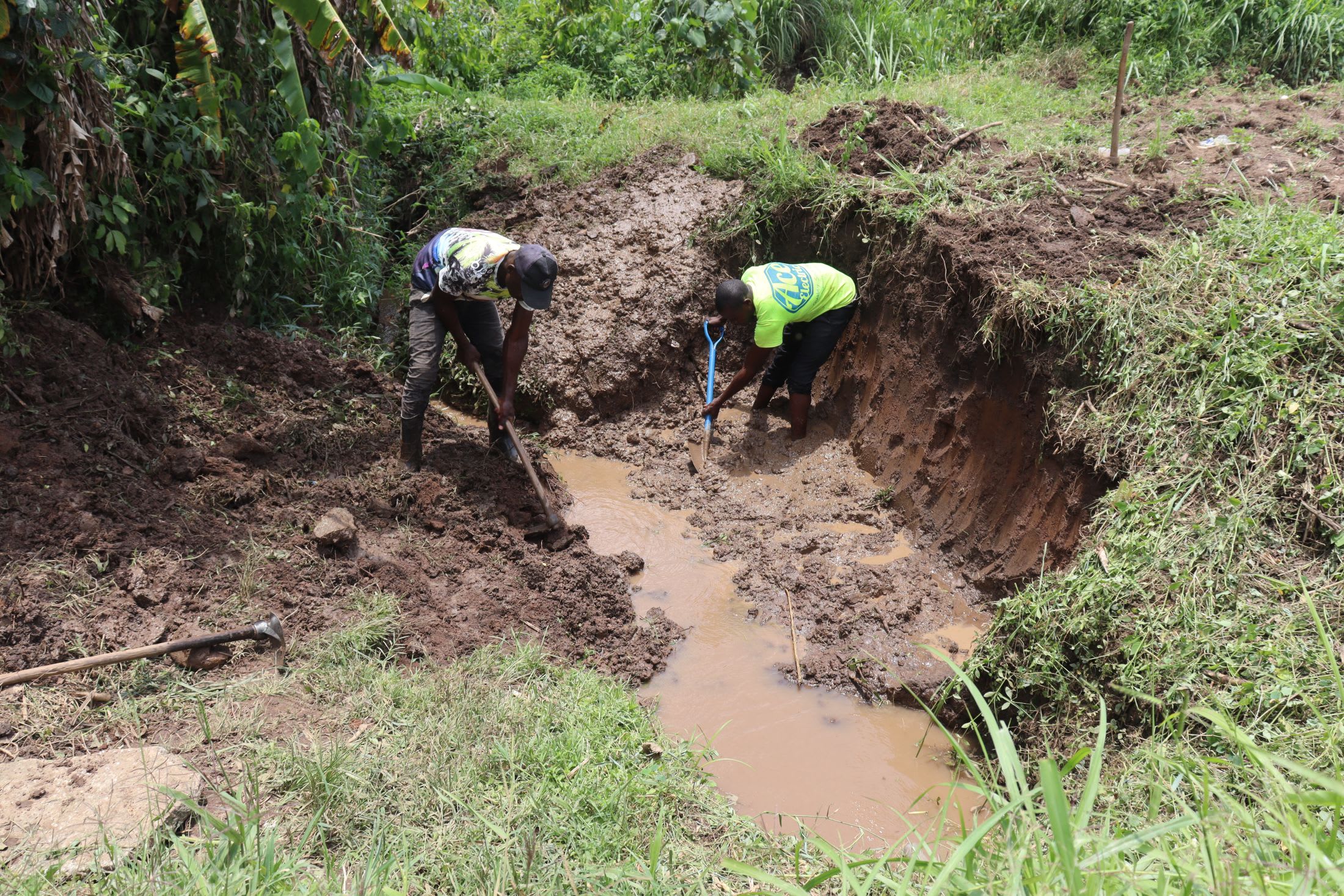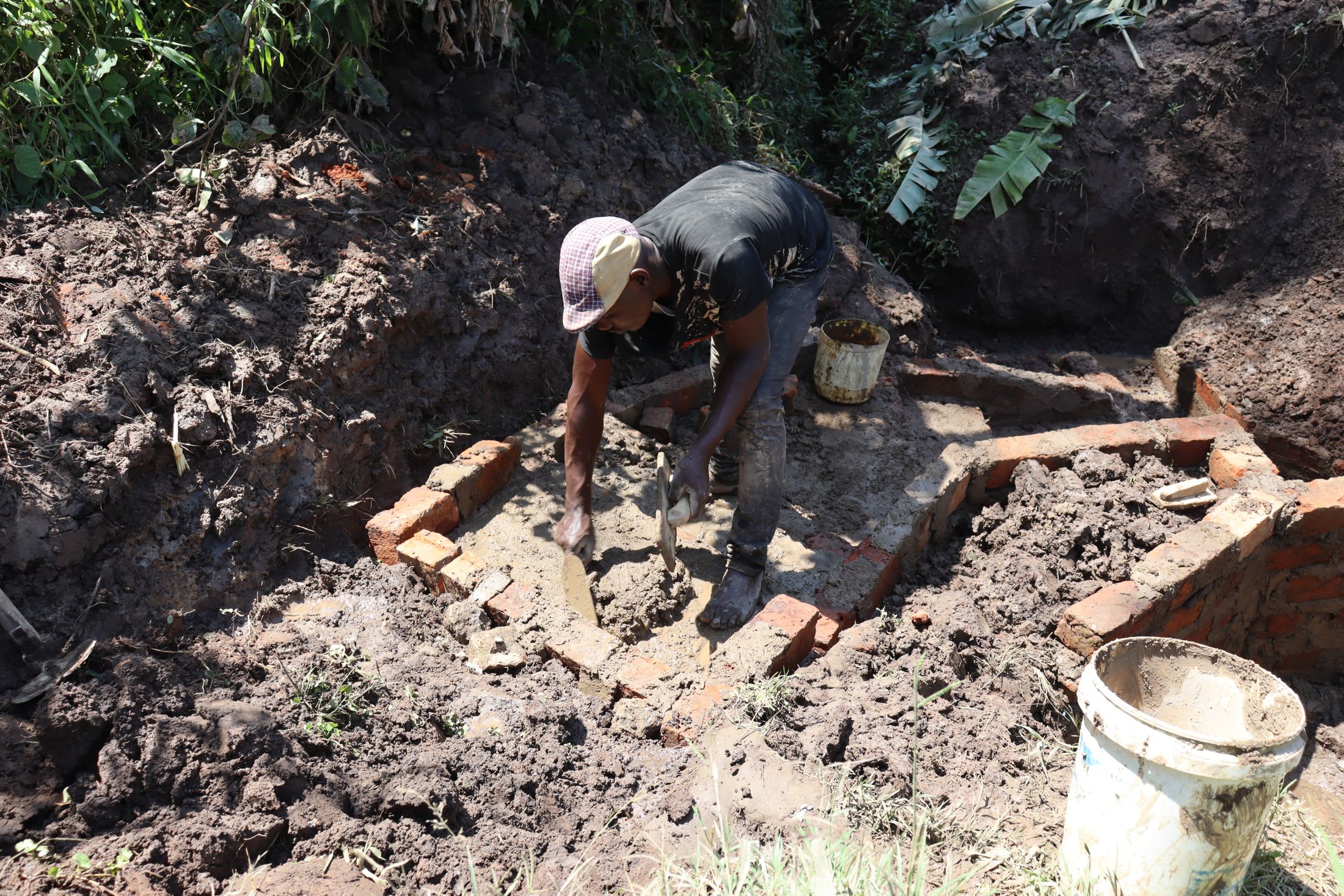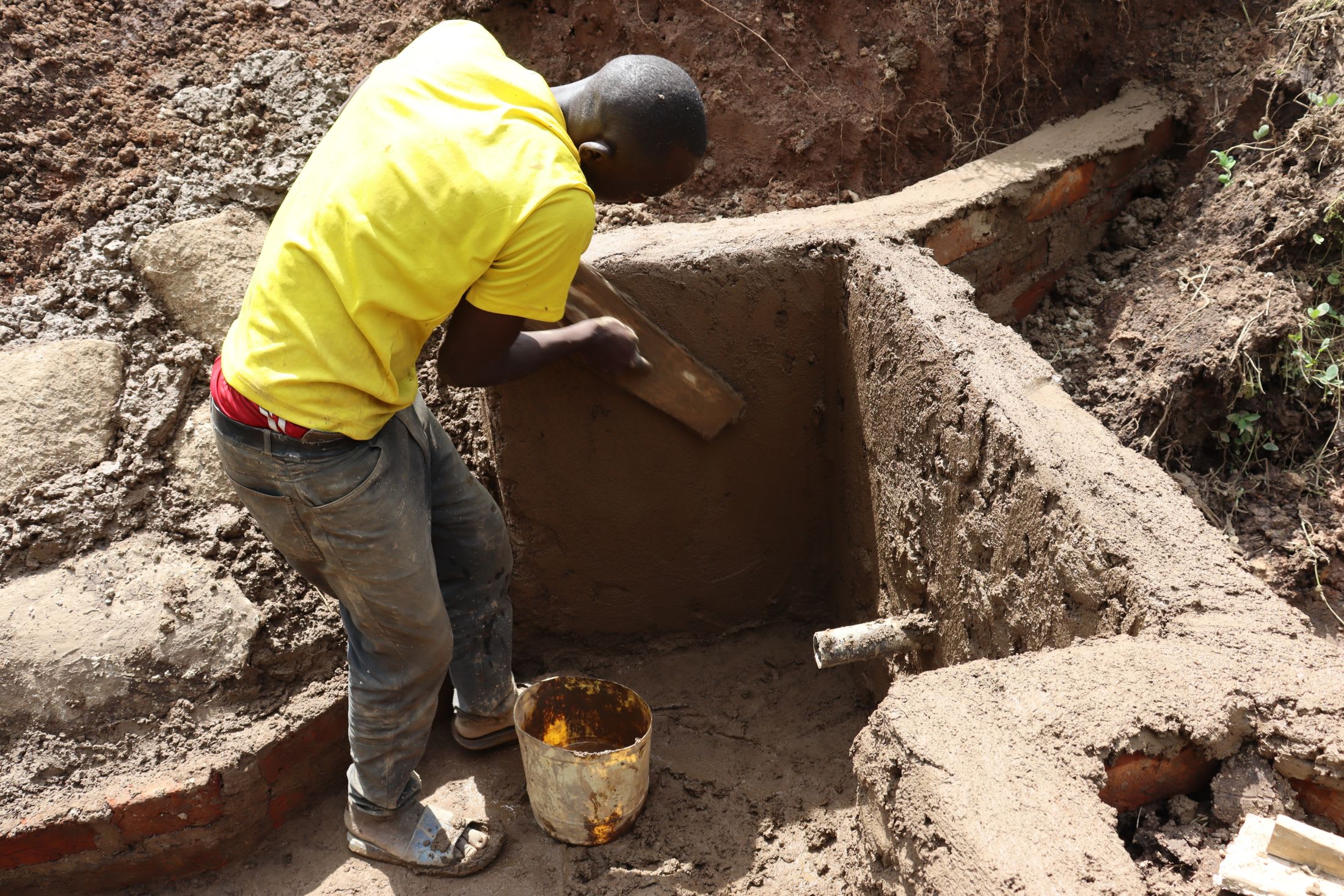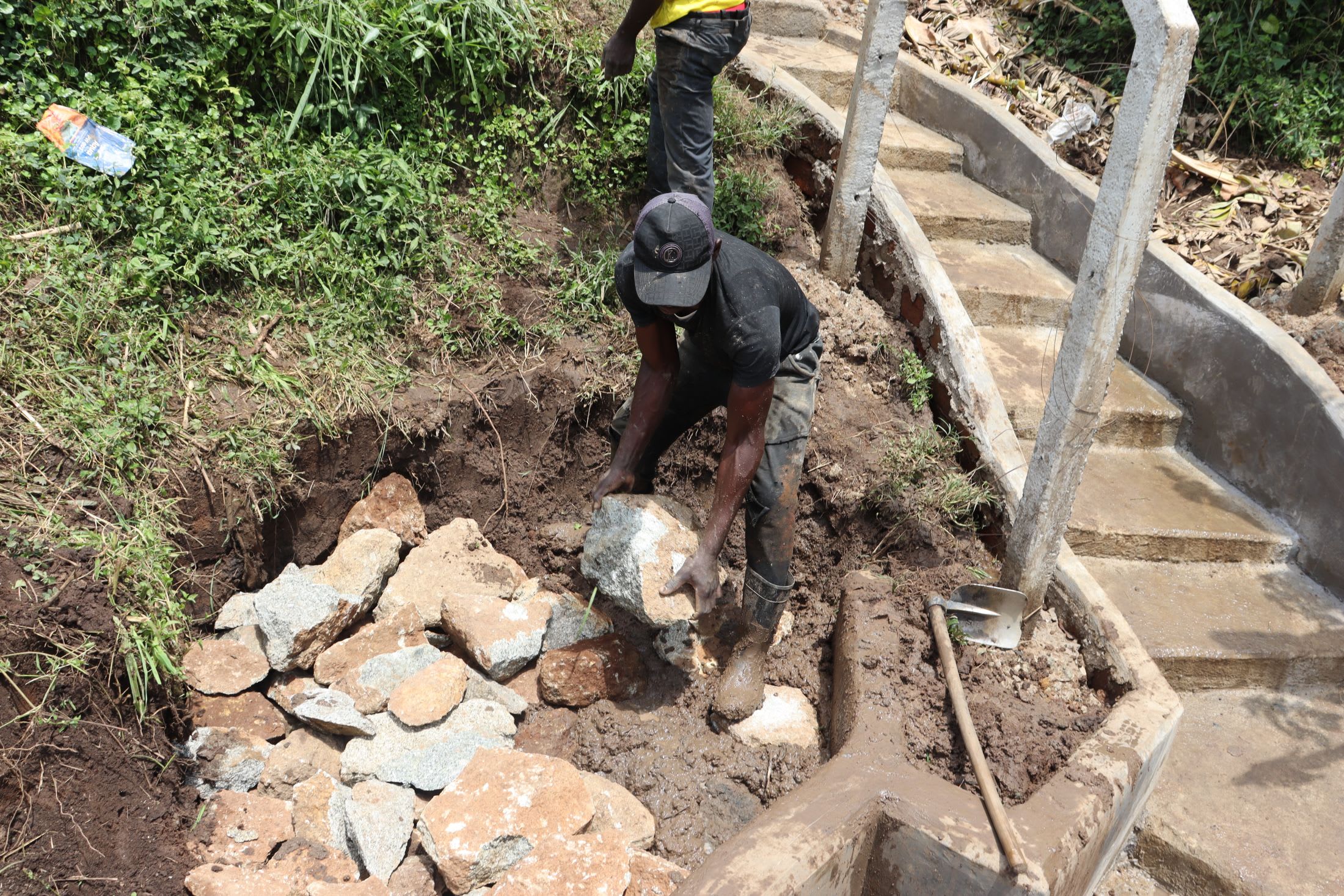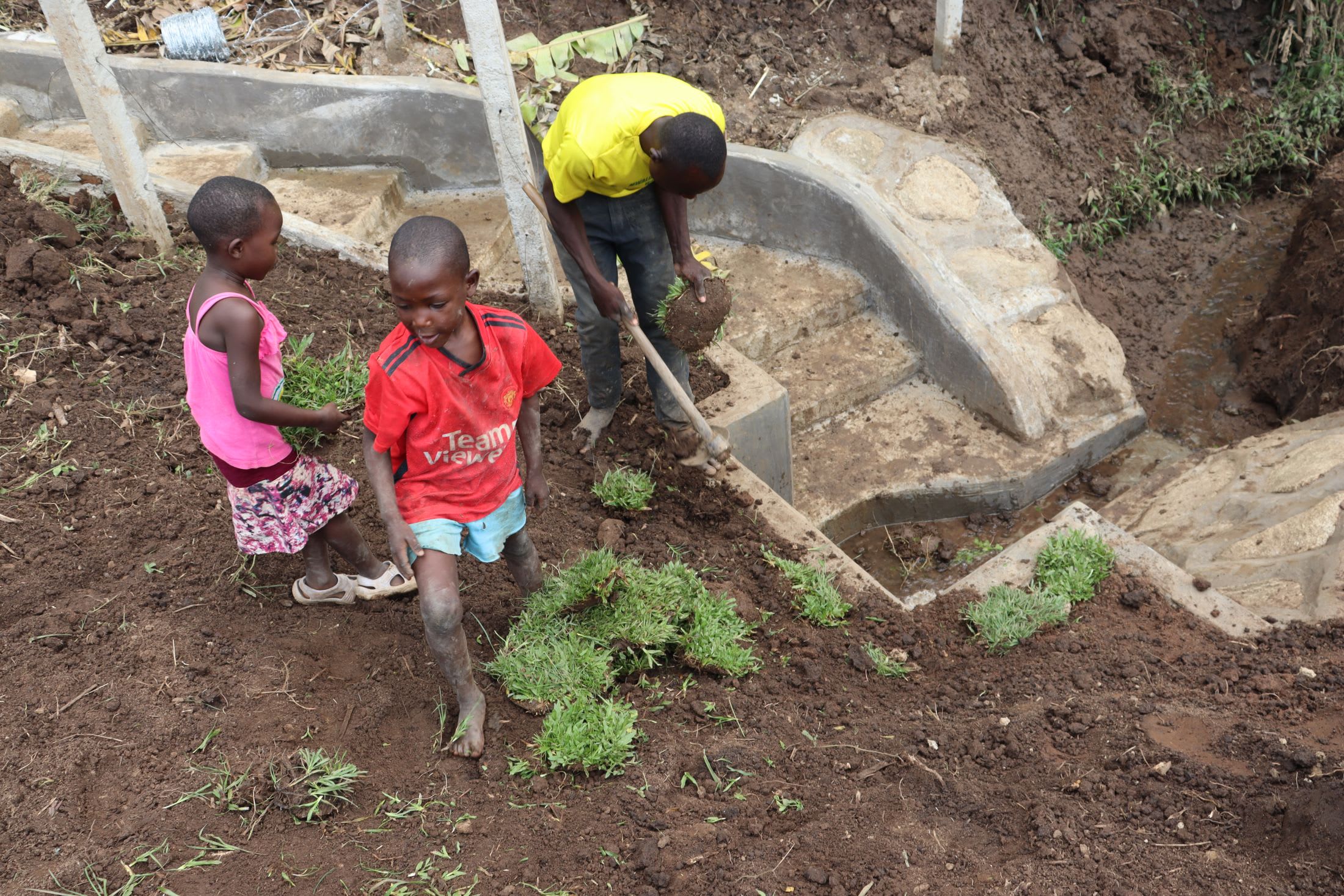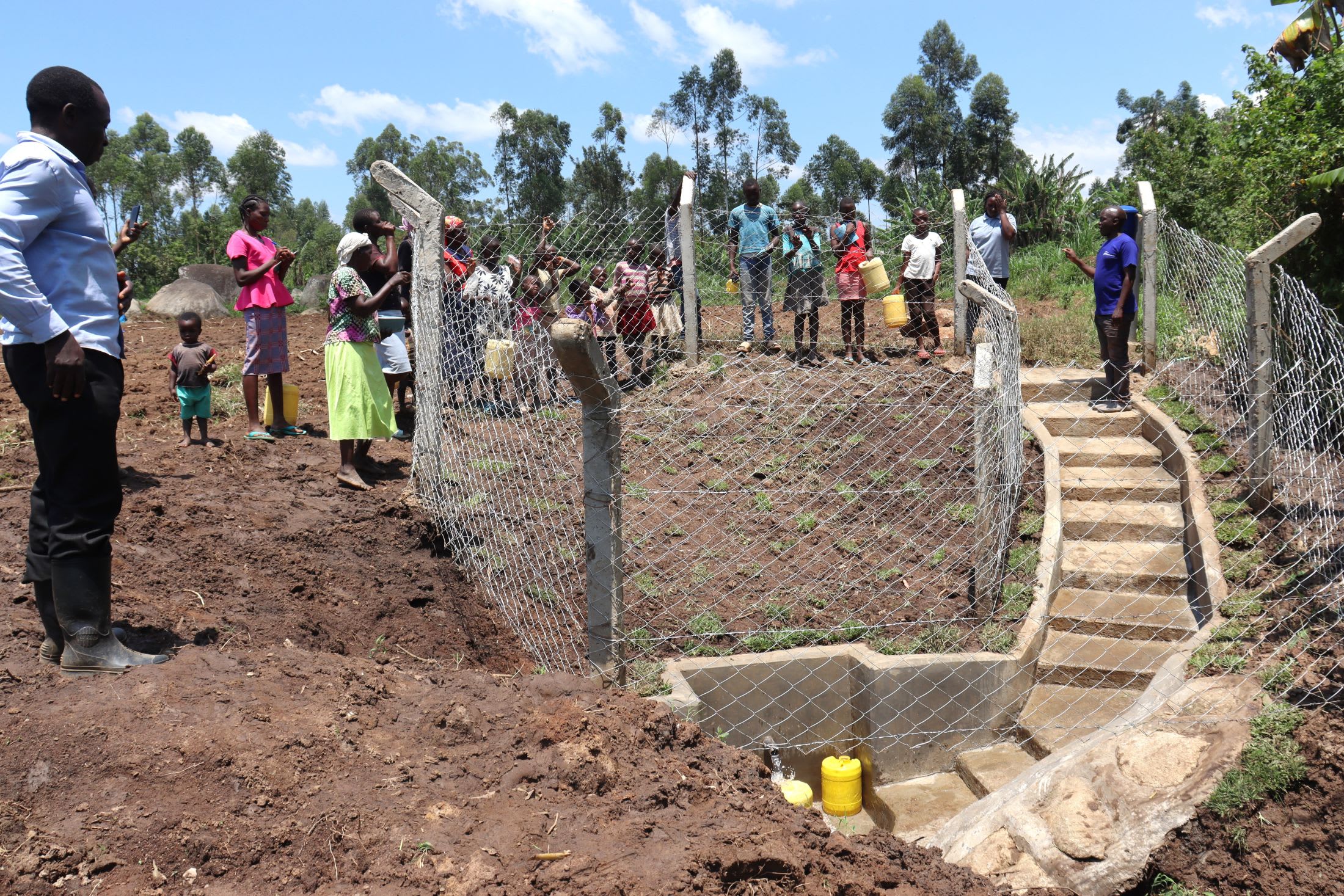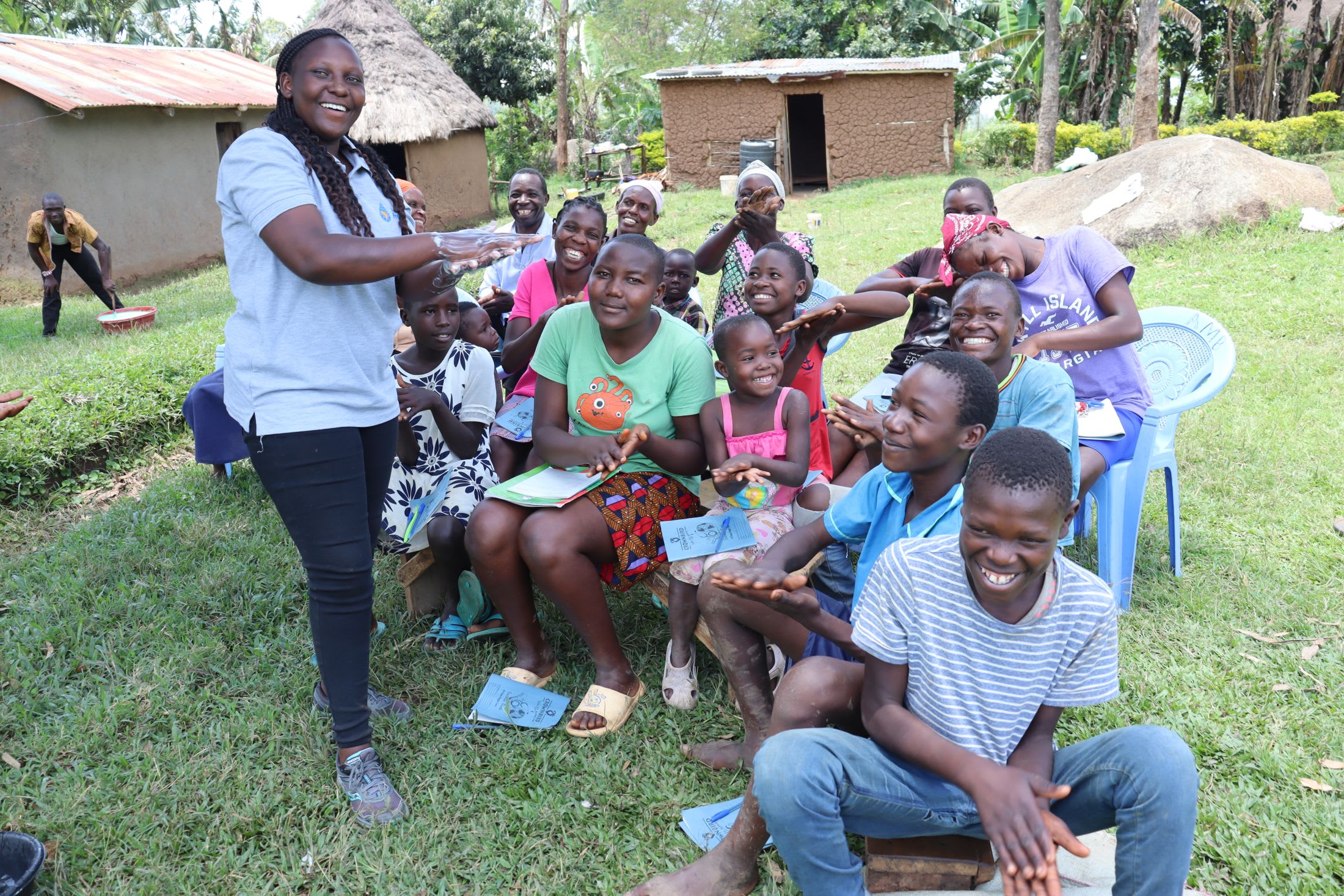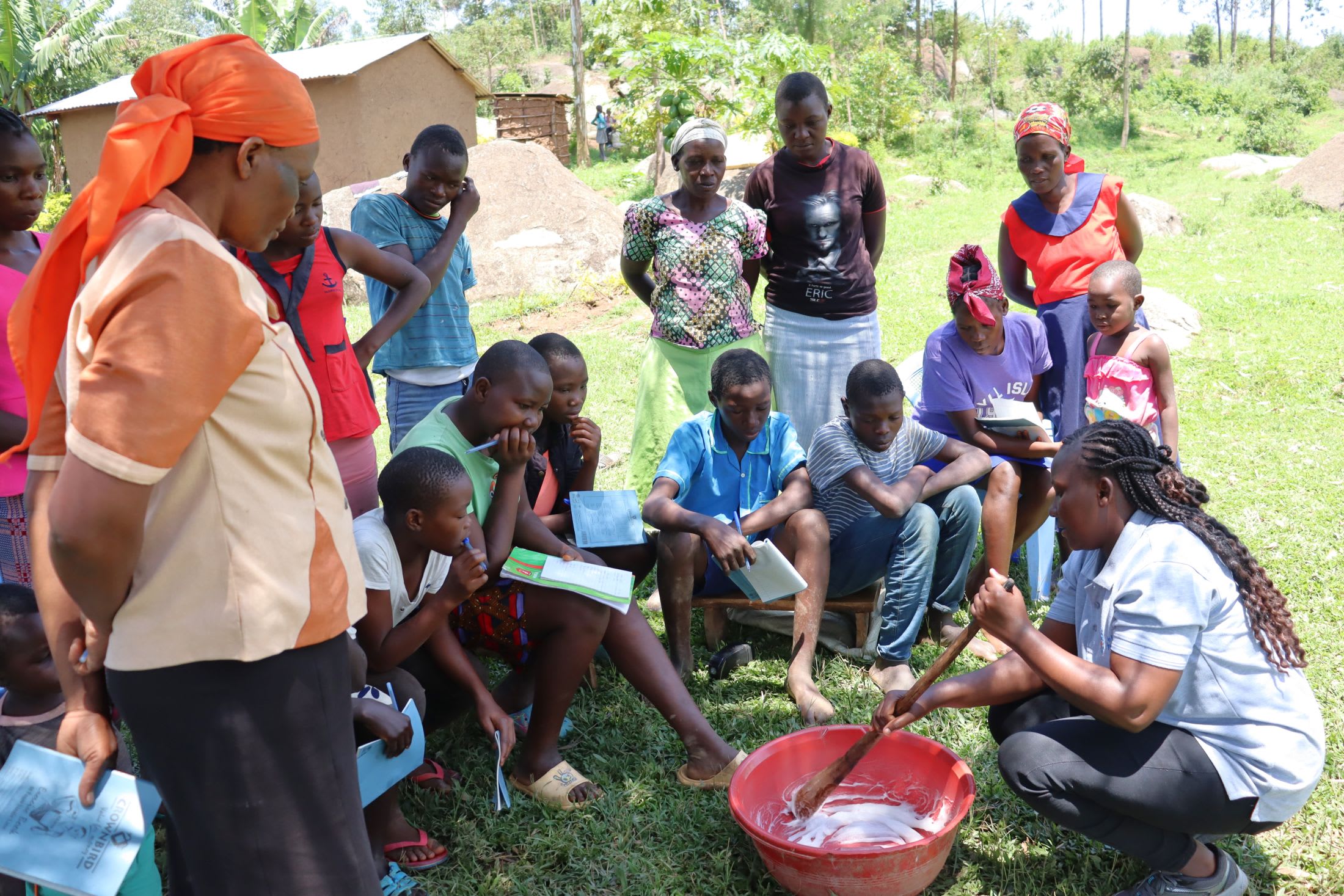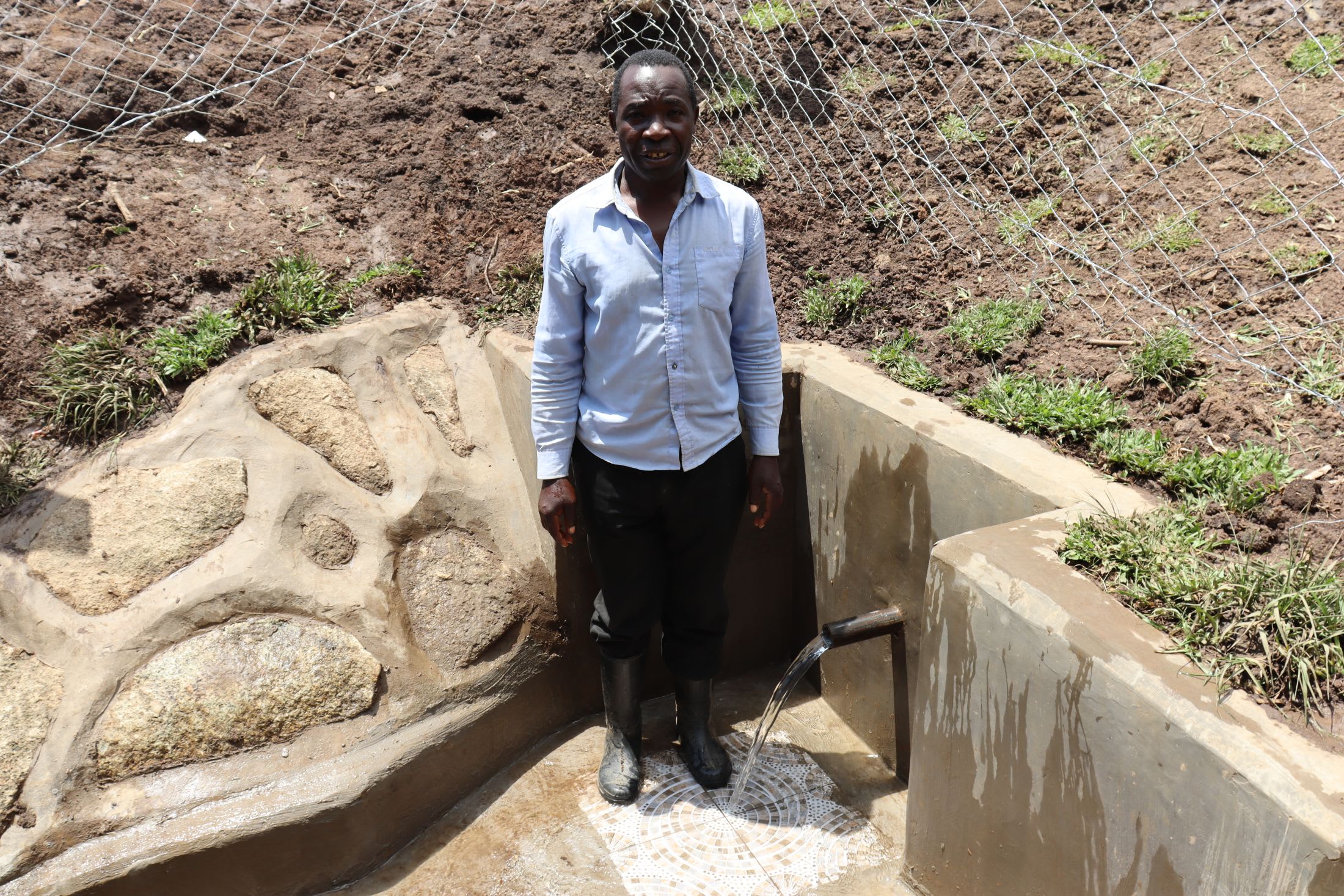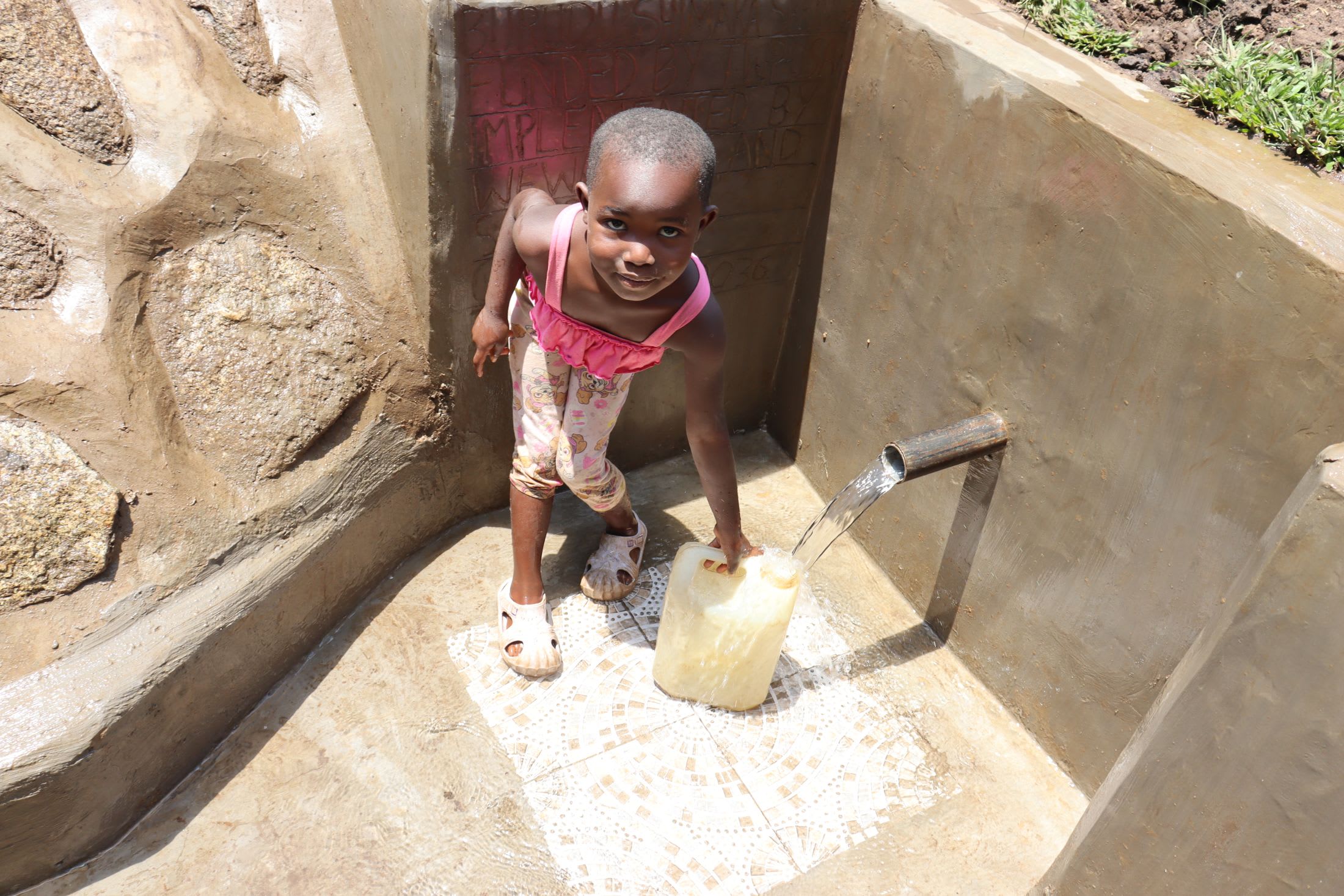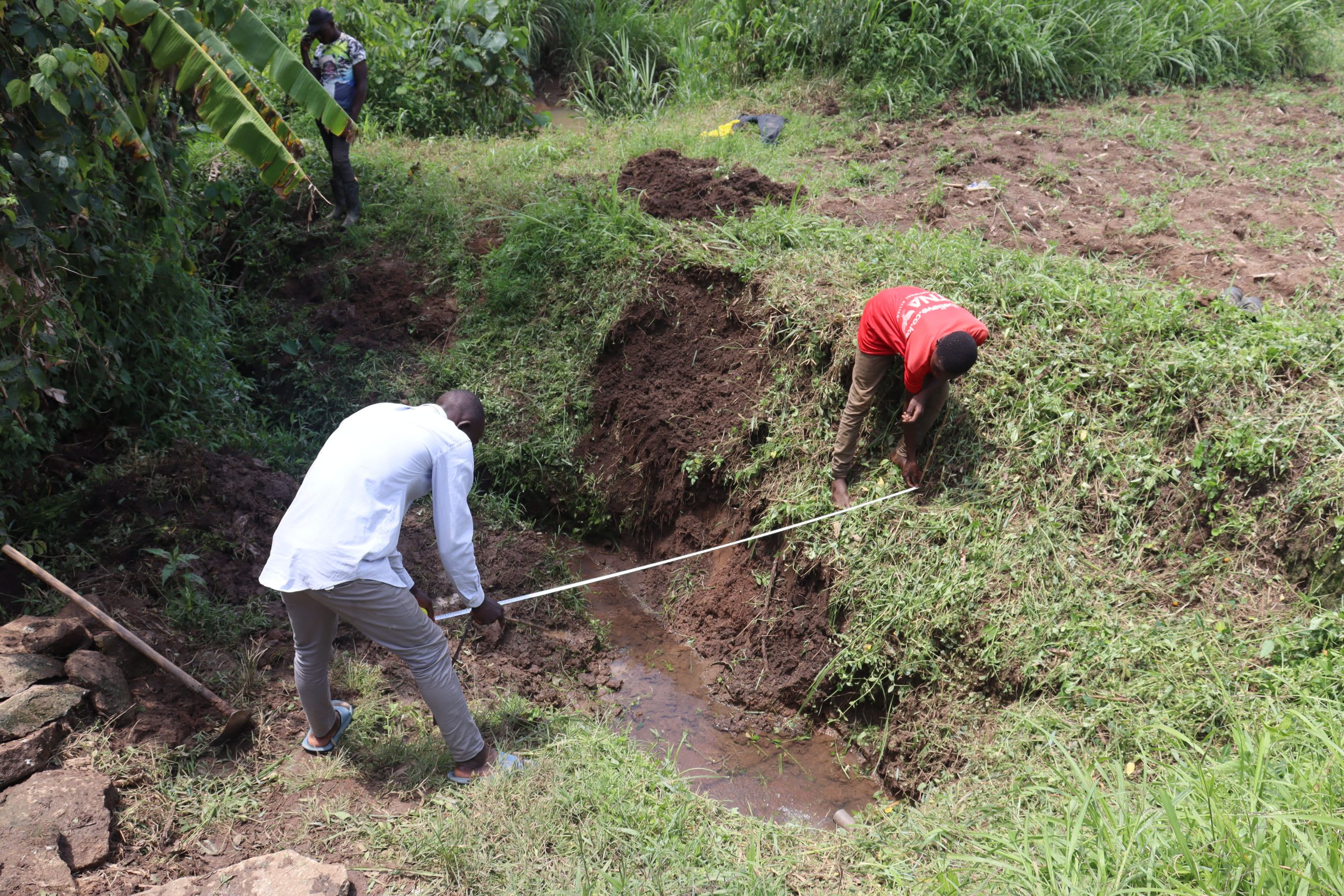The 140 people who live in Shikose Community only have an unprotected spring to meet their daily water needs. Unfortunately, it is not a reliable water source, and the water they so desperately need is the same water that is making them sick with water-related illnesses.
"Their water point is unprotected; hence water fetched here is not safe for drinking, but because there is no other alternative water source, community [members] do use water that way. And this has resulted [in] waterborne and water-related diseases which have drained [the] community resources on seeking medication," shared field officer Jonathan Mutai.

The spring's water flows from a pipe that the community inserted into the dirt bank surrounded by rocks attempting to make collection easier and faster. The water from the pipe drains into a small pool of stagnant, muddy water that community members must stand in up to their ankles while submerging their containers into the water to fit under the spout.
"The current state of the water point does make one not to feel [like] going for water in the morning when it is very cold. When one remembers stepping in water in order to fetch it," said 48-year-old farmer Veronica Tamba, shown below with her daughter, refilling her storage containers at home with spring water.
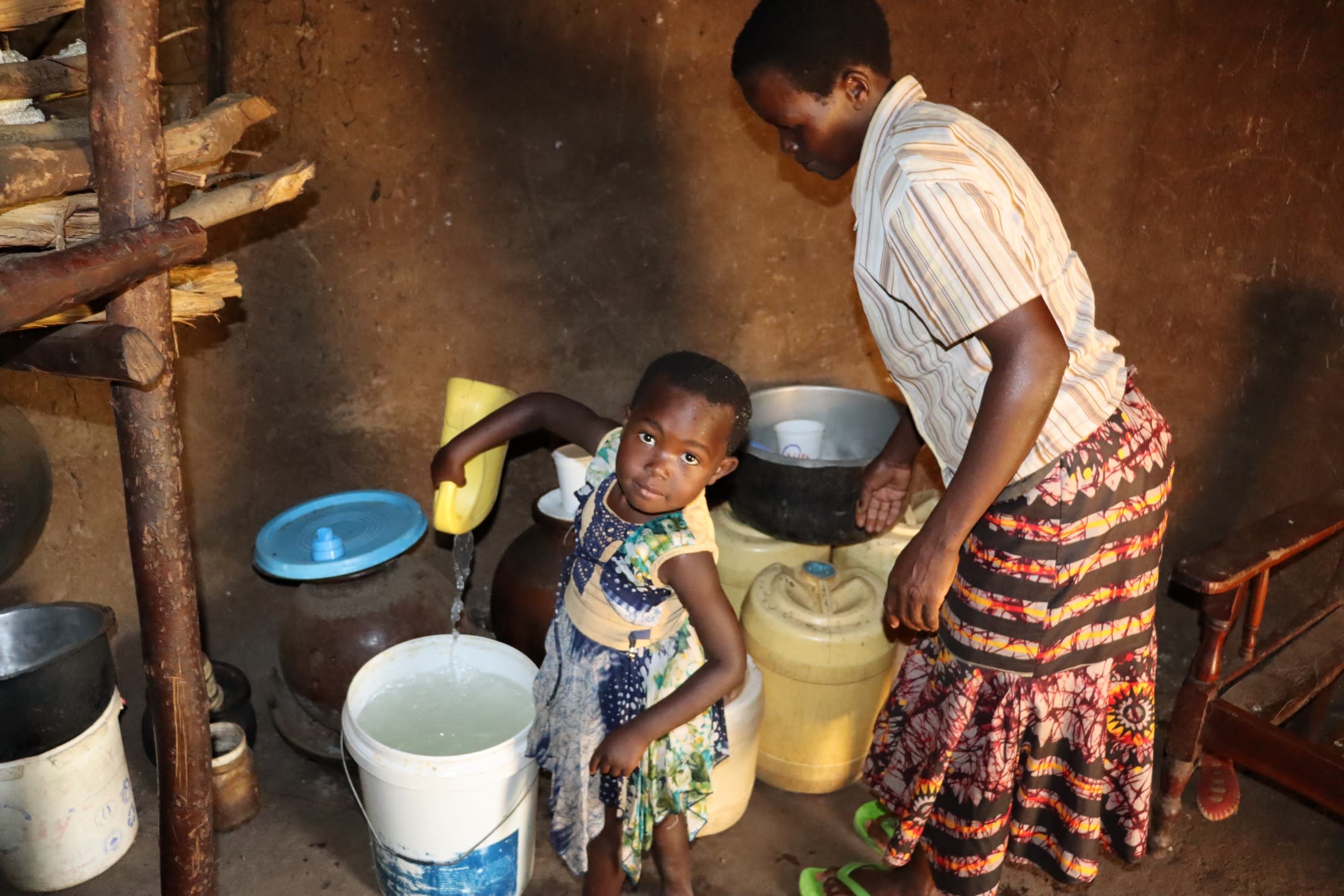
"Besides that, I personally am a victim of waterborne ailments. We were used to boiling water for drinking, but at times [like now], getting firewood currently has become a great challenge to us. This makes us drink water at times without boiling, and this has resulted to contracting water-related ailments, which has cost us [while] seeking treatment," continued Veronica.
Thirteen-year-old Thomas N. (shown below) agrees that stepping into the cold water in the spring box is one of the worst parts of collecting from the unprotected spring. "The current water situation is not favourable to us at all. This is because going for water, especially in the morning when you have to pass through bad routes stepping on cold dews before going to step [in the] water so as to fetch it makes you hate everything that comes before you that morning. The worst thing is when you encounter long queues."
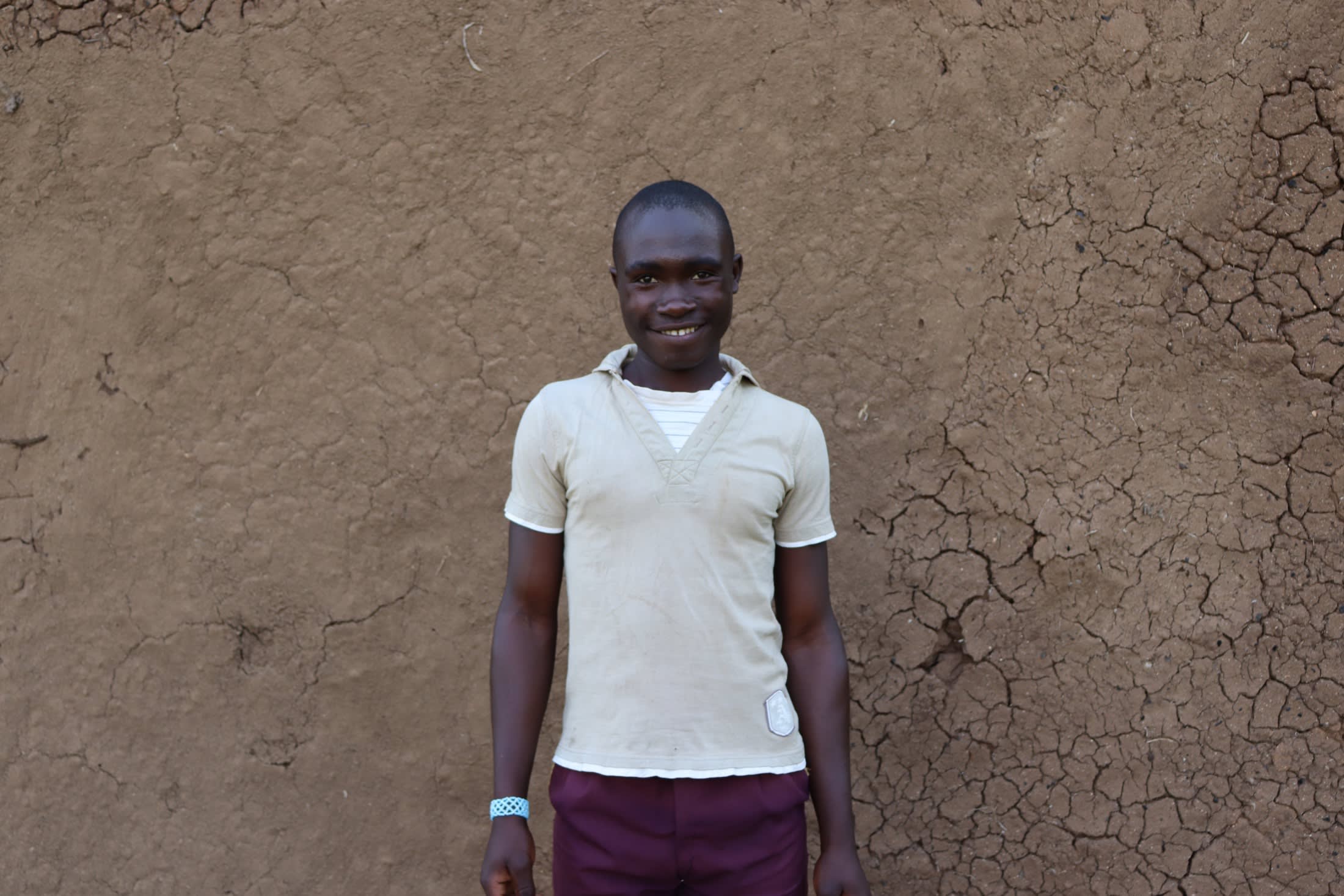
"This community has been trying their best to ensure that they get clean water or draw water at ease only that they were using local things because of limited resources. Helping them to construct their water point with technical know-how will help them access clean water without the need of wasting firewood to boil water. It will also minimize if not eradicate waterborne and water-related problems, thus helping them save their resources for constructive development and even taking their kids for further studies," concluded Jonathan.
The protection of the spring will enable people like Thomas and Veronica to collect water without worrying about becoming ill and suffering while standing in cold water. And since water collection will be much quicker, they will have time to conserve their resources and focus on other important tasks to improve their daily lives.
The Proposed Solution, Determined Together...
At The Water Project, everyone has a part in conversations and solutions. We operate in transparency, believing it benefits everyone. We expect reliability from one another as well as our water solutions. Everyone involved makes this possible through hard work and dedication.
In a joint discovery process, community members determine their most advantageous water solution alongside our technical experts. Read more specifics about this solution on the What We're Building tab of this project page. Then, community members lend their support by collecting needed construction materials (sometimes for months ahead of time!), providing labor alongside our artisans, sheltering and feeding the builders, and supplying additional resources.
Water Access for Everyone
This water project is one piece in a large puzzle. In Kenya, Sierra Leone, and Uganda, we're working toward complete coverage of reliable, maintained water sources that guarantee public access now and in the future within a 30-minute round trip for each community, household, school, and health center. One day, we hope to report that this has been achieved!
Training on Health, Hygiene & More
With the community's input, we've identified topics where training will increase positive health outcomes at personal, household, and community levels. We'll coordinate with them to find the best training date. Some examples of what we train communities on are:
- Improved hygiene, health, and sanitation habits
- Safe water handling, storage & treatment
- Disease prevention and proper handwashing
- Income-generation
- Community leadership, governance, & election of a water committee
- Operation and maintenance of the water point
Chlorine Dispensers
Installing chlorine dispensers is an important piece of our spring protection projects. Protecting a spring provides community members with an improved water source, but it doesn’t prevent contamination once the water is collected and stored. For example, if the water is clean and the container is dirty, the water will become contaminated.
We ensure that each chlorine dispenser is filled with diluted chlorine on a consistent schedule so that people can add pre-measured drops to each container of water they collect. That way, community members can feel even more confident in the quality of their water.

 Protected Spring
Protected Spring
 Rehabilitation Project
Rehabilitation Project




